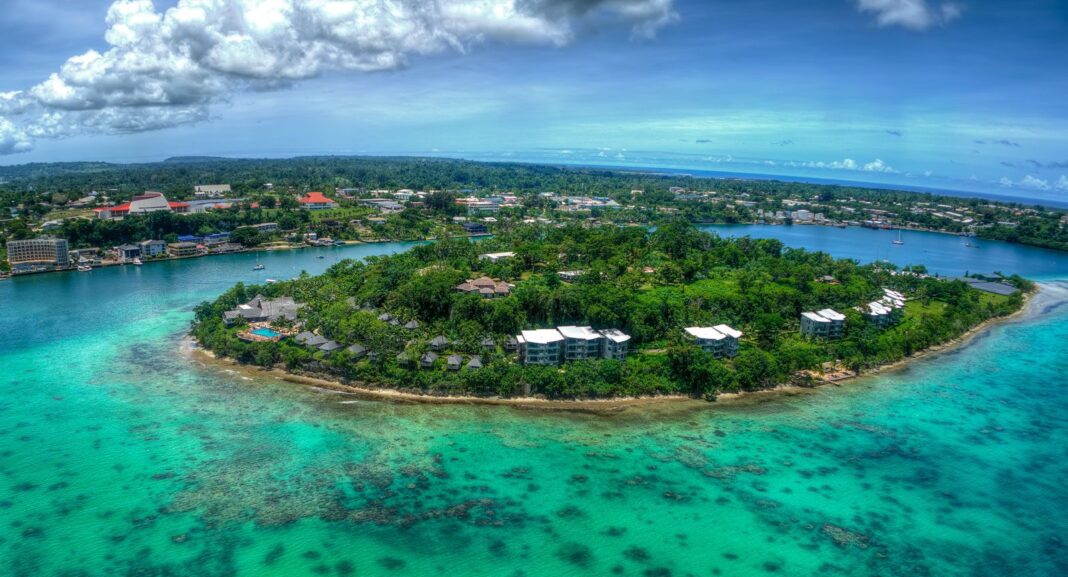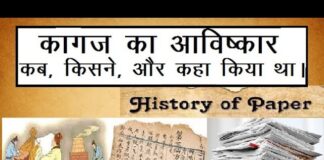The tropical islands of the South Pacific that became Vanuatu are said to have been inhabited for 4,000 years. A long history involving the West has made the island predominantly Christian and Western in their ways. However, local culture still follows a slow and laidback island lifestyle.
History
It is believed that the beautiful tropical islands of Vanuatu located in the South Pacific were first populated by Austronesian-speaking peoples who came here around 4,000 years ago. Apart from a few archeological remains in the form of fragments of pottery, little is known about the early history of the island.
Recorded history began upon the arrival of Europeans during the age of discovery. In the employ of the Spanish king, Portuguese explorer Pedro Fernandes de Queiros set foot on one of the islands and named it La Australía del Espiritu Santo (the Southern Lands of the Holy Spirit). The island is the largest in the country and has retained the name Espiritu Santo. It was not until 168 years after this Spanish mission that another European arrived on the islands. In 1768, Captain Cook came to Vanuatu and named the archipelago the New Hebrides. The name remained until the country gained independence in 1980.
The middle of the 1800s saw a mass exodus of workers from the country heading abroad, specifically Australia, Fiji, and territories of New Spain. The labor trade, however, consisted of debt bondage in the form of indentured labor called blackbirding, wherein laborers were coerced to do usually backbreaking plantation work in extremely poor conditions. More than half of Vanuatu’s population left during the height of this mass exodus, severely reducing the indigenous population.

The rest of the 19th century saw Christian missionaries coming ashore from Europe and North America to convert the locals and teach them the ways of the Western world. It was also during this time that the Caledonian Company of the New Hebrides was established. This encouraged the subjects from French territories to move to the islands and live with the locals, who were subjects of the British crown, many from Australia. At the onset of the 1900s, however, the French subjects formed the majority of the population.
By 1906, the French and the British agreed to govern the islands together in a form of government called the British-French Condominium. This continued until the 1940s when WWII was brought to the islands by the Americans. It was this time when a sense of nationalism among locals grew large enough to challenge the joint form of government. By the 1970s, nationalism was at its peak when Father Walter Lini and company founded the New Hebrides National Party. A brief uprising later in the decade arose precisely when the New Hebrides was about to declare its independence. Called the Coconut War by the foreign press, the uprising was short-lived. Declaration of independence went ahead in 1980. New Hebrides became the Republic of Vanuatu and Father Walter Lini became the first Prime Minister.
Culture
The population of Vanuatu is comprised of people of Melanesian descent, the ni-Vanuatu. Because of the Christian missions that took place in the late 1800s, Christianity is the predominant religion, with 83 percent of the population being Christian. This does not mean, however, that indigenous culture has entirely disappeared. Locals still see owning a pig, particularly one with large rounded tusks, as a symbol of a person’s wealth and standing. Young men still go through a number of coming-of-age rituals like circumcision or land diving. Visitors heading out to small villages will see the village clubhouse, the nakamal, which serves as a general gathering place for the entire village. Traditional music can still be heard in these small villages as well. Instruments include wooden slit drums and gongs, rattles, and many others.
In Vanuatu, the pace of life is very slow. It is referred to as island time. The culture here is very relaxed and laidback. Informal tropical wear is the norm. However, people being very conservative or, in the case of small villages, very traditional, modesty in appearance is advised. This means no beach wear away from the beaches. Vanuatu has strict rules on land ownership and those exploring seemingly uninhabited parts of the islands may want to inquire first as they might be stepping onto private property.
History, culture, local tradition, and religion all play a role in the Vanuatu holidays and festivals. One local ritual worth seeing is the death-defying stunt of the local men of Pentecost Island who dive from as high as 98ft with only tree vines tied to their legs. Visitors are also welcome to join in the festivities of Saint Andrew Festival, a Christian festival which has adopted local customs in Vanuatu.
John Frum Day
John Frum is a mythical figure associated with a cargo cult which arose on Tanna Island in Vanuatu. Usually depicted as a WWII soldier from the US, John Frum is said to bring wealth and prosperity to those who believe in him. Every year, usually in March, a military parade is held in his honor, signifying that this non-violent cult is still quite active today.
ANZAC Day
ANZAC stands for Australia and New Zealand Army Corps and ANZAC Day, April 25, commemorates the day when Australian and New Zealand soldiers fought and died in the battle of Gallipoli against the Ottoman Empire in WWI. The Australian and New Zealand high commissions hold a joint event every year in Port Vila to celebrate the lives of the ANZAC troopers.
Nagol Land Diving
This is perhaps the cultural tradition of the ni-Vanuatu which has made the nation famous all over the world. Said to be the pre-cursor of modern bungee jumping, Nagol land diving sees local men of the southern part of Pentecost Island jumping off wooden towers from heights of up to 98ft with only tree vines tied to their feet as part of a coming-of-age ritual. Previously held once a year, the tradition now takes place every Saturday from April to June to accommodate tourists who want to witness this death-defying ritual of the locals.
Fête de la Musique
As with many other cities around the world, June 21st sees performances from both amateur and professional musicians showcasing their talent at different venues across the towns of Port Vila and Luganville. Musical artists donate their time for free and spectators come to see the show free-of-charge.
Saint Andrew Festival
The Saint Andrew Festival is a Christian festival in Vanuatu that has been infused with local indigenous traditions. In the Banks region, locals from Rah and Mota Lava have been coming together for more around 100 years now in this festival celebrating the life of Saint Andrew, the Apostle. The three-day event sees both locals and visitors in large festivities and feasts featuring food cooked by geothermal energy. The festival is held every November 29.
Vanuatu
Yumi, Yumi, Yumi
(We, We, We)
Original Bislama Words
CHORUS
Yumi, Yumi, Yumi i glat blong talem se,
Yumi, Yumi, Yumi i man blong Vanuatu!
God i givim ples ia long yumi,
Yumi glat tumas long hem,
Yumi strong moyumi fri long hem,
Yumi brata evriwan!
CHORUS
Plante fasin blong bifo i stap,
Plante fasin blong tedei,
Be yumi i olsem wan nomo,
Hemia fasin blong yumi!
CHORUS
Yumi save plante wok i stap,
Long ol aelan blong yumi,
God i help em yumi evriwan,
Hemi papa blong yumi,
CHORUS
English:
CHORUS
We are happy to proclaim
We are the People of Vanuatu!
God has given us this land;
This gives us great cause for rejoicing.
We are strong, we are free in this land;
We are all brothers.
CHORUS
We have many traditions
And we are finding new ways.
Now we shall be one People,
We shall be united for ever.
CHORUS
We know there is much work to be done
On all our islands.
May God, our Father, help us!






